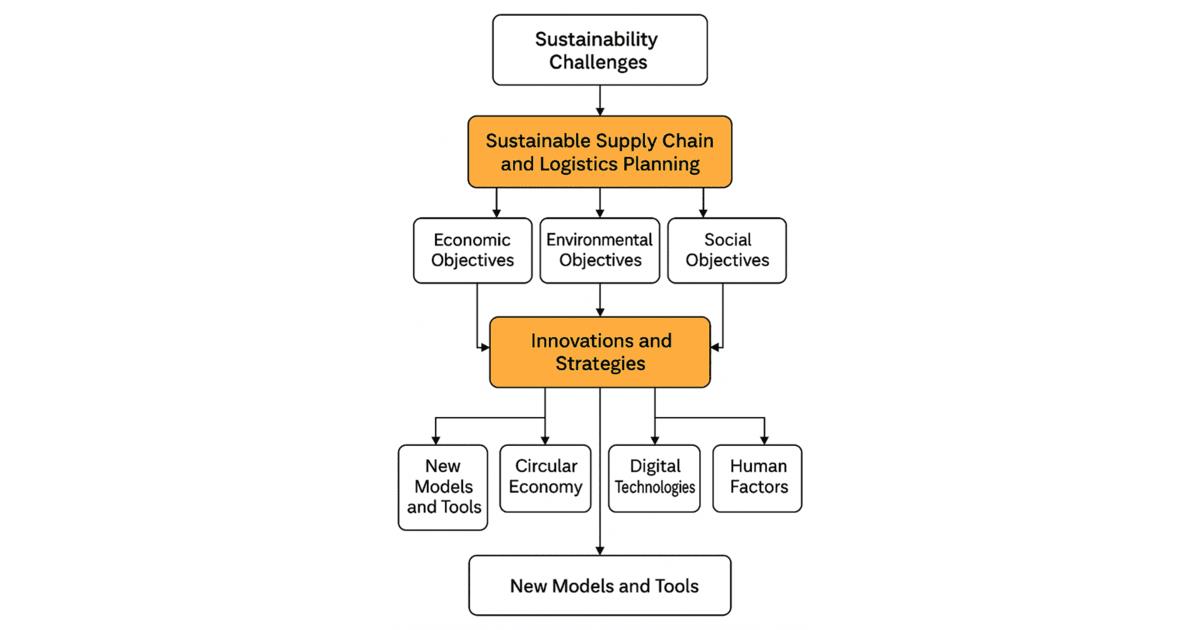Advancing Sustainable Supply Chain and Logistics Planning: Challenges, Innovations, and Strategies
A special issue of Sustainability (ISSN 2071-1050).
Deadline for manuscript submissions: 30 September 2026 | Viewed by 396

Special Issue Editors
Interests: modeling; optimization; logistics; transportation
Interests: multicriteria decision-making; multi criteria analysis; decision making; ELECTRE method; multiple criteria; closed-loop supply chain; remanufacturing; reverse logistics
Interests: logistic; sustainable supply chain management; e-logistic
Special Issues, Collections and Topics in MDPI journals
Special Issue Information
Dear Colleagues,
Scope and Purpose:
In today’s interconnected and volatile world, sustainable supply chain and logistics planning has become a critical priority. As organizations strive to reduce their environmental impact while maintaining operational efficiency and social responsibility, new models and tools are needed to navigate the complex trade-offs between economic, environmental, and social objectives. This Special Issue aims to explore the innovative approaches, methodologies, and technologies that contribute to building more sustainable, resilient, and inclusive supply chains and logistics systems.
The scope includes a wide range of themes such as sustainable sourcing and procurement, human factors in logistics, the circular economy, carbon footprint reduction, and the integration of digital transformation technologies like AI, IoT, and Blockchain. We also welcome contributions on policy impacts, urban mobility solutions, and risk management strategies that support sustainability and resilience.
Relationship to the Existing Literature:
While the existing literature has addressed aspects of green logistics and sustainable operations, this Special Issue seeks to provide an integrated and forward-looking perspective. It emphasizes the convergence of sustainability goals with digital innovation and human-centric planning, areas that remain underrepresented in existing research. Furthermore, it highlights the need for context-specific case studies and cross-sectoral comparisons that bridge the gap between theory and practical application.
Contribution to Sustainability:
This Special Issue contributes directly to the mission of the journal Sustainability by addressing pressing global challenges through socio-economic, technological, and environmental lenses. It supports the definition and quantification of sustainability by:
- Showcasing tools and models for measuring and monitoring sustainability in logistics and supply chains.
- Exploring AI-driven forecasting, optimization, and planning techniques to enhance resource efficiency and reduce emissions.
- Promoting circular economy approaches and low-carbon strategies across logistics networks.
- Evaluating policy and regulatory frameworks that incentivize sustainable practices.
- Enhancing awareness of human and social dimensions in supply chain planning, such as labor conditions, ethical procurement, and inclusion.
- Encouraging the integration of digital innovations (IoT, blockchain, digital twins) to improve traceability, transparency, and resilience in logistics chains.
By integrating scientific research with actionable strategies, this Special Issue will offer valuable insights for academics, practitioners, and policymakers committed to advancing sustainability in logistics and supply chains across different geographic and industrial contexts.
Dr. Adnen El Amraoui
Prof. Dr. Ahmed Frikha
Dr. Ngoc Ai Thy Nguyen
Guest Editors
Manuscript Submission Information
Manuscripts should be submitted online at www.mdpi.com by registering and logging in to this website. Once you are registered, click here to go to the submission form. Manuscripts can be submitted until the deadline. All submissions that pass pre-check are peer-reviewed. Accepted papers will be published continuously in the journal (as soon as accepted) and will be listed together on the special issue website. Research articles, review articles as well as short communications are invited. For planned papers, a title and short abstract (about 250 words) can be sent to the Editorial Office for assessment.
Submitted manuscripts should not have been published previously, nor be under consideration for publication elsewhere (except conference proceedings papers). All manuscripts are thoroughly refereed through a single-blind peer-review process. A guide for authors and other relevant information for submission of manuscripts is available on the Instructions for Authors page. Sustainability is an international peer-reviewed open access semimonthly journal published by MDPI.
Please visit the Instructions for Authors page before submitting a manuscript. The Article Processing Charge (APC) for publication in this open access journal is 2400 CHF (Swiss Francs). Submitted papers should be well formatted and use good English. Authors may use MDPI's English editing service prior to publication or during author revisions.
Keywords
- sustainable supply chain
- green logistics
- artificial intelligence
- optimization
- multi-criteria decision making (MCDM)
- forecasting and planning
- circular economy
- transport and urban mobility
- risk management
- Industry 4.0/5.0
- carbon footprint reduction
- resilient supply chains
- smart logistics
- sustainable innovation
- environmental policy
- lifecycle assessment
- data-driven logistics
- ethical supply chains
- digital transformation
- energy efficiency
Benefits of Publishing in a Special Issue
- Ease of navigation: Grouping papers by topic helps scholars navigate broad scope journals more efficiently.
- Greater discoverability: Special Issues support the reach and impact of scientific research. Articles in Special Issues are more discoverable and cited more frequently.
- Expansion of research network: Special Issues facilitate connections among authors, fostering scientific collaborations.
- External promotion: Articles in Special Issues are often promoted through the journal's social media, increasing their visibility.
- Reprint: MDPI Books provides the opportunity to republish successful Special Issues in book format, both online and in print.
Further information on MDPI's Special Issue policies can be found here.







